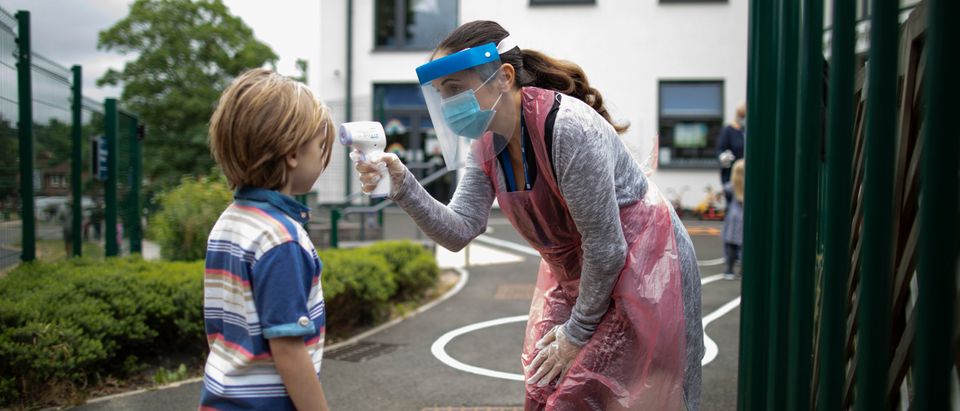A group of scientists reportedly said Monday that the coronavirus variant spreading throughout south Britain could carry a mutation that makes children more likely to contract it.
Scientists from the government’s New and Emerging Respiratory Virus Threats Advisory Group (NERVTAG) told reporters at a briefing that the new strain could soon sweep across the country, Reuters reported.
“We now have high confidence that this variant does have a transmission advantage over other virus variants that are currently in the UK,” Peter Horby, professor of emerging infectious diseases at Oxford University and chair of NERVTAG told reporters, according to Reuters.
UK coronavirus variant may be more able to infect children: scientists https://t.co/U2ZHpZ9a3B pic.twitter.com/DzLZ4QQ1o8
— Reuters (@Reuters) December 21, 2020
Neil Ferguson, infectious disease epidemiologist at Imperial College London told the group that there is a “hint” that the variant “has a higher propensity to infect children.”
“We haven’t established any sort of causality on that, but we can see it in the data,” Ferguson continued. “We will need to gather more data to see how it behaves going forward.”
Wendy Barclay specialist in virology at Imperial told the briefing that one of the changes in the variant is the way it enters cells, which could mean “that children are, perhaps, equally susceptible to this virus as adults,” Reuters reported.
The World Health Organization’s emergencies chief Mike Ryan said Monday that there is no evidence yet that suggests the new variant is more deadly than current strain, Reuters reported. It is a “normal part of virus evolution,” Ryan said. (RELATED: Don’t Be Alarmed About The New Coronavirus Strain In Britain, Experts Say)
President Donald Trump’s assistant secretary for health, Admiral Brett Giroir, said in a CNN interview that the Centers for Disease Control and Prevention has yet to limit travel from the U.K. but that the U.S. would keep a close eye on any developments.
“Every hour we get more information,” he said. “So I think everything is possible. We just need to put everything on the table, have an open scientific discussion and make a best recommendation.”


